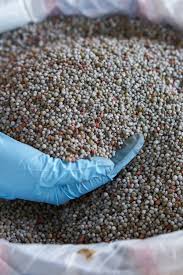
Dec . 03, 2024 19:09 Back to list
Factory Production of Organic Time-Release Fertilizers for Sustainable Agriculture Solutions
The Importance of Organic Time-Release Fertilizer Factories
In recent years, the agricultural sector has witnessed a significant transformation driven by the increasing demand for sustainable farming practices. Among the innovations leading this shift is the development of organic time-release fertilizers. These fertilizers not only cater to the nutritional needs of plants but also promote environmental wellness, making them crucial for modern agriculture. This article explores the significance of organic time-release fertilizer factories, their manufacturing processes, benefits, and the future of sustainable agriculture.
Understanding Organic Time-Release Fertilizers
Organic time-release fertilizers are designed to gradually release nutrients into the soil over an extended period. Unlike conventional fertilizers, which provide an immediate nutrient boost and can lead to chemical runoff, organic versions break down slowly, providing a steady supply of nutrients aligned with plant growth needs. These fertilizers are typically derived from natural materials such as compost, manure, bone meal, and other organic matter. The slow-release mechanism minimizes the risk of nutrient leaching while maximizing efficiency and efficacy.
The Manufacturing Process
Organic time-release fertilizer factories employ a combination of processes to produce high-quality fertilizers. The journey begins with sourcing raw materials that are rich in nutrients. These materials undergo rigorous screening and testing to ensure they are free from harmful chemicals and pathogens. After this, the ingredients are processed, which may include composting, granulation, and blending, to achieve the desired nutrient composition and release characteristics.
Granulation is a critical step in the production as it determines the size and shape of the fertilizer granules, which directly affects how they dissolve in the soil. Advanced technology is often utilized in these factories to ensure uniformity in particle size and nutrient distribution. These processes are designed to optimize nutrient absorption by plants while reducing waste and enhancing environmental safety.
Benefits of Organic Time-Release Fertilizers
1. Nutrient Efficiency By releasing nutrients gradually, organic time-release fertilizers ensure that plants receive the right amount of nutrients at the right time. This leads to improved crop yield and quality.
organic time release fertilizer factory

2. Environmental Protection These fertilizers reduce the risk of runoff, a significant contributor to water pollution. They also improve soil health by promoting beneficial microbial activity, which is vital for long-term agricultural sustainability.
3. Cost-Effective While the initial investment in organic fertilizers can be higher than synthetic options, their efficiency and reduced leaching ultimately lead to lower costs over time. Farmers can buy less fertilizer and still achieve comparable or superior results.
4. Soil Health Improvement Organic time-release fertilizers contribute to building rich, fertile soil. The organic matter improves soil structure, enhances water retention, and fosters a healthy ecosystem for soil organisms.
The Future of Organic Time-Release Fertilizer Factories
As awareness of sustainable farming grows, the demand for organic time-release fertilizers is anticipated to increase. This trend presents significant opportunities for factories specializing in organic fertilizers. Innovations in production techniques, such as the incorporation of biotechnology, are likely to enhance nutrient release rates and further improve fertilizer efficiency.
Moreover, regulatory pressures to reduce chemical inputs in agriculture are pushing more farmers toward organic solutions. In response, factories can expand their product lines to meet specific crop needs and preferences, allowing for targeted solutions that enhance productivity without compromising environmental integrity.
Conclusion
The role of organic time-release fertilizer factories is becoming increasingly vital in the realm of sustainable agriculture. By combining environmental responsibility with agricultural efficiency, these facilities not only support farmers in achieving better yields but also contribute to the health of our ecosystems. As the agricultural landscape continues to evolve, embracing organic practices and innovations in fertilizer production will be essential in addressing the global challenges of food security and environmental sustainability. Through ongoing advancements and growing consumer support for organic products, the future looks promising for organic time-release fertilizer manufacturers, farmers, and the planet alike.
-
Premium Organic Manure Compost for Eco Gardens
NewsAug.01,2025
-
Organic 10-10-10 Fertilizer | Balanced Plant Nutrients
NewsJul.31,2025
-
Premium Amino Acid Fertilizer | Rapid Plant Growth Booster
NewsJul.31,2025
-
10 10 10 Fertilizer Organic—Balanced NPK for All Plants
NewsJul.30,2025
-
Premium 10 10 10 Fertilizer Organic for Balanced Plant Growth
NewsJul.29,2025
-
Premium 10 10 10 Fertilizer Organic for Balanced Plant Growth
NewsJul.29,2025
